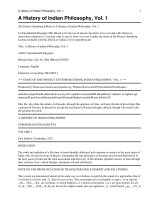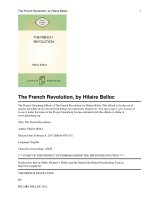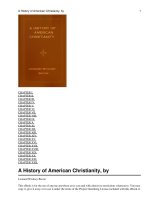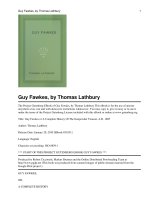THE FRENCH REVOLUTION A HISTORY pptx
Bạn đang xem bản rút gọn của tài liệu. Xem và tải ngay bản đầy đủ của tài liệu tại đây (1.38 MB, 506 trang )
Chapter 1.
Chapter 1.
Chapter 1.
Chapter 1.
Chapter 1.
Chapter 1.
Chapter 1.
Chapter 1.
Chapter 1.
Chapter 1.
Chapter 1.
Chapter 1.
Chapter 1.
Chapter 1.
Chapter 1.
Chapter 1.
Chapter 1.
Chapter 1.
Chapter 1.
Chapter 1.
Chapter 1.
Chapter 1.
Chapter 1.
Chapter 1.
Chapter 1.
Chapter 1.
Chapter 1.
Chapter 1.
Chapter 1.
Chapter 1.
1
Chapter 1.
Chapter 1.
Chapter 1.
Chapter 1.
Chapter 1.
Chapter 1.
Chapter 1.
Chapter 1.
Chapter 1.
Chapter 1.
Chapter 1.
Chapter 1.
Chapter 1.
Chapter 1.
Chapter 1.
Chapter 1.
Chapter 1.
Chapter 1.
Chapter 1.
Chapter 1.
Chapter 2.
Chapter 2.
Chapter 2.
Chapter 2.
Chapter 2.
Chapter 2.
Chapter 2.
Chapter 2.
Chapter 2.
Chapter 2.
Chapter 2.
Chapter 2.
Chapter 2.
Chapter 2.
Chapter 2.
Chapter 2.
Chapter 2.
Chapter 2.
Chapter 2.
Chapter 2.
Chapter 2.
Chapter 2.
Chapter 2.
Chapter 2.
Chapter 2.
Chapter 2.
Chapter 2.
Chapter 2.
Chapter 2.
Chapter 2.
Chapter 2.
Chapter 2.
2
Chapter 2.
Chapter 2.
Chapter 2.
Chapter 2.
Chapter 2.
Chapter 2.
Chapter 2.
Chapter 2.
Chapter 2.
Chapter 2.
Chapter 2.
Chapter 2.
Chapter 2.
Chapter 2.
Chapter 2.
Chapter 2.
Chapter 2.
Chapter 2.
Chapter 2.
Chapter 2.
Chapter 2.
Chapter 2.
Chapter 3.
Chapter 3.
Chapter 3.
Chapter 3.
Chapter 3.
Chapter 3.
Chapter 3.
Chapter 3.
Chapter 3.
Chapter 3.
Chapter 3.
Chapter 3.
Chapter 3.
Chapter 3.
Chapter 3.
Chapter 3.
Chapter 3.
Chapter 3.
Chapter 3.
Chapter 3.
Chapter 3.
Chapter 3.
Chapter 3.
Chapter 3.
Chapter 3.
Chapter 3.
Chapter 3.
Chapter 3.
Chapter 3.
Chapter 3.
3
Chapter 3.
Chapter 3.
Chapter 3.
Chapter 3.
Chapter 3.
Chapter 3.
Chapter 3.
Chapter 3.
Chapter 3.
Chapter 3.
Chapter 3.
Chapter 3.
Chapter 3.
Chapter 3.
Chapter 3.
Chapter 3.
Chapter 3.
Chapter 3.
Chapter 3.
Chapter 3.
Chapter 3.
Chapter 3.
Chapter 3.
Chapter 3.
THE FRENCH REVOLUTION
A HISTORY
by
THOMAS CARLYLE
CONTENTS.
VOLUME I.
THE BASTILLE
BOOK 1.I.
DEATH OF LOUIS XV.
Chapter 1.
1.I. Louis the Well-Beloved
Chapter 1.
1.II. Realised Ideals
THE FRENCH REVOLUTION 4
Chapter 1.
1.III. Viaticum
Chapter 1.
1.IV. Louis the Unforgotten
BOOK 1.II.
THE PAPER AGE
Chapter 1.
2.I. Astraea Redux
Chapter 1.
2.II. Petition in Hieroglyphs
Chapter 1.
2.III. Questionable
Chapter 1.
2.IV. Maurepas
Chapter 1.
2.V. Astraea Redux without Cash
Chapter 1.
2.VI. Windbags
Chapter 1.
2.VII. Contrat Social
Chapter 1.
2.VIII. Printed Paper
BOOK 1.III.
THE PARLEMENT OF PARIS
Chapter 1.
3.I. Dishonoured Bills
THOMAS CARLYLE 5
Chapter 1.
3.II. Controller Calonne
Chapter 1.
3.III. The Notables
Chapter 1.
3.IV. Lomenie's Edicts
Chapter 1.
3.V. Lomenie's Thunderbolts
Chapter 1.
3.VI. Lomenie's Plots
Chapter 1.
3.VII. Internecine
Chapter 1.
3.VIII. Lomenie's Death-throes
Chapter 1.
3.IX. Burial with Bonfire
BOOK 1.IV.
STATES-GENERAL
Chapter 1.
4.I. The Notables Again
Chapter 1.
4.II. The Election
Chapter 1.
4.III. Grown Electric
Chapter 1.
4.IV. The Procession
THOMAS CARLYLE 6
BOOK 1.V.
THE THIRD ESTATE
Chapter 1.
5.I. Inertia
Chapter 1.
5.II. Mercury de Breze
Chapter 1.
5.III. Broglie the War-God
Chapter 1.
5.IV. To Arms!
Chapter 1.
5.V. Give us Arms
Chapter 1.
5.VI. Storm and Victory
Chapter 1.
5.VII. Not a Revolt
Chapter 1.
5.VIII. Conquering your King
Chapter 1.
5.IX. The Lanterne
Book 1.VI.
CONSOLIDATION
Chapter 1.
6.I. Make the Constitution
Chapter 1.
6.II. The Constituent Assembly
THOMAS CARLYLE 7
Chapter 1.
6.III. The General Overturn
Chapter 1.
6.IV. In Queue
Chapter 1.
6.V. The Fourth Estate
BOOK 1.VII.
THE INSURRECTION OF WOMEN
Chapter 1.
7.I. Patrollotism
Chapter 1.
7.II. O Richard, O my King
Chapter 1.
7.III. Black Cockades
Chapter 1.
7.IV. The Menads
Chapter 1.
7.V. Usher Maillard
Chapter 1.
7.VI. To Versailles
Chapter 1.
7.VII. At Versailles
Chapter 1.
7.VIII. The Equal Diet
Chapter 1.
7.IX. Lafayette
THOMAS CARLYLE 8
Chapter 1.
7.X. The Grand Entries
Chapter 1.
7.XI. From Versailles
VOLUME II.
THE CONSTITUTION
BOOK 2.I.
THE FEAST OF PIKES
Chapter 2.
1.I. In the Tuileries
Chapter 2.
1.II. In the Salle de Manege
Chapter 2.
1.III. The Muster
Chapter 2.
1.IV. Journalism
Chapter 2.
1.V. Clubbism
Chapter 2.
1.VI. Je le jure
Chapter 2.
1.VII. Prodigies
Chapter 2.
1.VIII. Solemn League and Covenant
Chapter 2.
1.IX. Symbolic
THOMAS CARLYLE 9
Chapter 2.
1.X. Mankind
Chapter 2.
1.XI. As in the Age of Gold
Chapter 2.
1.XII. Sound and Smoke
BOOK 2.II.
NANCI
Chapter 2.
2.I. Bouille
Chapter 2.
2.II. Arrears and Aristocrats
Chapter 2.
2.III. Bouille at Metz
Chapter 2.
2.IV. Arrears at Nanci
Chapter 2.
2.V. Inspector Malseigne
Chapter 2.
2.VI. Bouille at Nanci
BOOK 2.III.
THE TUILERIES
Chapter 2.
3.I. Epimenides
Chapter 2.
3.II. The Wakeful
THOMAS CARLYLE 10
Chapter 2.
3.III. Sword in Hand
Chapter 2.
3.IV. To fly or not to fly
Chapter 2.
3.V. The Day of Poniards
Chapter 2.
3.VI. Mirabeau
Chapter 2.
3.VII. Death of Mirabeau
BOOK 2.IV.
VARENNES
Chapter 2.
4.I. Easter at Saint-Cloud
Chapter 2.
4.II. Easter at Paris
Chapter 2.
4.III. Count Fersen
Chapter 2.
4.IV. Attitude
Chapter 2.
4.V. The New Berline
Chapter 2.
4.VI. Old-Dragoon Drouet
Chapter 2.
4.VII. The Night of Spurs
THOMAS CARLYLE 11
Chapter 2.
4.VIII. The Return
Chapter 2.
4.IX. Sharp Shot
BOOK 2.V.
PARLIAMENT FIRST
Chapter 2.
5.I. Grande Acceptation
Chapter 2.
5.II. The Book of the Law
Chapter 2.
5.III. Avignon
Chapter 2.
5.IV. No Sugar
Chapter 2.
5.V. Kings and Emigrants
Chapter 2.
5.VI. Brigands and Jales
Chapter 2.
5.VII. Constitution will not march
Chapter 2.
5.VIII. The Jacobins
Chapter 2.
5.IX. Minister Roland
Chapter 2.
5.X. Petion-National-Pique
THOMAS CARLYLE 12
Chapter 2.
5.XI. The Hereditary Representative
Chapter 2.
5.XII. Procession of the Black Breeches
BOOK 2.VI.
THE MARSEILLESE
Chapter 2.
6.I. Executive that does not act
Chapter 2.
6.II. Let us march
Chapter 2.
6.III. Some Consolation to Mankind
Chapter 2.
6.IV. Subterranean
Chapter 2.
6.V. At Dinner
Chapter 2.
6.VI. The Steeples at Midnight
Chapter 2.
6.VII. The Swiss
Chapter 2.
6.VIII. Constitution burst in Pieces
VOLUME III.
THE GUILLOTINE
BOOK 3.I.
SEPTEMBER
THOMAS CARLYLE 13
Chapter 3.
1.I. The Improvised Commune
Chapter 3.
1.II. Danton
Chapter 3.
1.III. Dumouriez
Chapter 3.
1.IV. September in Paris
Chapter 3.
1.V. A Trilogy
Chapter 3.
1.VI. The Circular
Chapter 3.
1.VII. September in Argonne
Chapter 3.
1.VIII. Exeunt
BOOK 3.II.
REGICIDE
Chapter 3.
2.I. The Deliberative
Chapter 3.
2.II. The Executive
Chapter 3.
2.III. Discrowned
Chapter 3.
2.IV. The Loser pays
THOMAS CARLYLE 14
Chapter 3.
2.V. Stretching of Formulas
Chapter 3.
2.VI. At the Bar
Chapter 3.
2.VII. The Three Votings
Chapter 3.
2.VIII. Place de la Revolution
BOOK 3.III.
THE GIRONDINS
Chapter 3.
3.I. Cause and Effect
Chapter 3.
3.II. Culottic and Sansculottic
Chapter 3.
3.III. Growing shrill
Chapter 3.
3.IV. Fatherland in Danger
Chapter 3.
3.V. Sansculottism Accoutred
Chapter 3.
3.VI. The Traitor
Chapter 3.
3.VII. In Fight
Chapter 3.
3.VIII. In Death-Grips
THOMAS CARLYLE 15
Chapter 3.
3.IX. Extinct
BOOK 3.IV.
TERROR
Chapter 3.
4.I. Charlotte Corday
Chapter 3.
4.II. In Civil War
Chapter 3.
4.III. Retreat of the Eleven
Chapter 3.
4.IV. O Nature
Chapter 3.
4.V. Sword of Sharpness
Chapter 3.
4.VI. Risen against Tyrants
Chapter 3.
4.VII. Marie-Antoinette
Chapter 3.
4.VIII. The Twenty-two
BOOK 3.V.
TERROR THE ORDER OF THE DAY
Chapter 3.
5.I. Rushing down
Chapter 3.
5.II. Death
THOMAS CARLYLE 16
Chapter 3.
5.III. Destruction
Chapter 3.
5.IV. Carmagnole complete
Chapter 3.
5.V. Like a Thunder-Cloud
Chapter 3.
5.VI. Do thy Duty
Chapter 3.
5.VII. Flame-Picture
BOOK 3.VI.
THERMIDOR
Chapter 3.
6.I. The Gods are athirst
Chapter 3.
6.II. Danton, No weakness
Chapter 3.
6.III. The Tumbrils
Chapter 3.
6.IV. Mumbo-Jumbo
Chapter 3.
6.V. The Prisons
Chapter 3.
6.VI. To finish the Terror
Chapter 3.
6.VII. Go down to
THOMAS CARLYLE 17
BOOK 3.VII.
VENDEMIAIRE
Chapter 3.
7.I. Decadent
Chapter 3.
7.II. La Cabarus
Chapter 3.
7.III. Quiberon
Chapter 3.
7.IV. Lion not dead
Chapter 3.
7.V. Lion sprawling its last
Chapter 3.
7.VI. Grilled Herrings
Chapter 3.
7.VII. The Whiff of Grapeshot
THE FRENCH REVOLUTION A HISTORY
By
THOMAS CARLYLE
VOLUME I THE BASTILLE
BOOK 1.I.
DEATH OF LOUIS XV.
THOMAS CARLYLE 18
Chapter 1.
1.I.
Louis the Well-Beloved.
President Henault, remarking on royal Surnames of Honour how difficult it often is to ascertain not only why,
but even when, they were conferred, takes occasion in his sleek official way, to make a philosophical
reflection. 'The Surname of Bien-aime (Well-beloved),' says he, 'which Louis XV. bears, will not leave
posterity in the same doubt. This Prince, in the year 1744, while hastening from one end of his kingdom to the
other, and suspending his conquests in Flanders that he might fly to the assistance of Alsace, was arrested at
Metz by a malady which threatened to cut short his days. At the news of this, Paris, all in terror, seemed a city
taken by storm: the churches resounded with supplications and groans; the prayers of priests and people were
every moment interrupted by their sobs: and it was from an interest so dear and tender that this Surname of
Bien-aime fashioned itself, a title higher still than all the rest which this great Prince has earned.' (Abrege
Chronologique de l'Histoire de France (Paris, 1775), p. 701.)
So stands it written; in lasting memorial of that year 1744. Thirty other years have come and gone; and 'this
great Prince' again lies sick; but in how altered circumstances now! Churches resound not with excessive
groanings; Paris is stoically calm: sobs interrupt no prayers, for indeed none are offered; except Priests'
Litanies, read or chanted at fixed money- rate per hour, which are not liable to interruption. The shepherd of
the people has been carried home from Little Trianon, heavy of heart, and been put to bed in his own Chateau
of Versailles: the flock knows it, and heeds it not. At most, in the immeasurable tide of French Speech (which
ceases not day after day, and only ebbs towards the short hours of night), may this of the royal sickness
emerge from time to time as an article of news. Bets are doubtless depending; nay, some people 'express
themselves loudly in the streets.' (Memoires de M. le Baron Besenval (Paris, 1805), ii. 59- 90.) But for the
rest, on green field and steepled city, the May sun shines out, the May evening fades; and men ply their useful
or useless business as if no Louis lay in danger.
Dame Dubarry, indeed, might pray, if she had a talent for it; Duke d'Aiguillon too, Maupeou and the
Parlement Maupeou: these, as they sit in their high places, with France harnessed under their feet, know well
on what basis they continue there. Look to it, D'Aiguillon; sharply as thou didst, from the Mill of St. Cast, on
Quiberon and the invading English; thou, 'covered if not with glory yet with meal!' Fortune was ever
accounted inconstant: and each dog has but his day.
Forlorn enough languished Duke d'Aiguillon, some years ago; covered, as we said, with meal; nay with
worse. For La Chalotais, the Breton Parlementeer, accused him not only of poltroonery and tyranny, but even
of concussion (official plunder of money); which accusations it was easier to get 'quashed' by backstairs
Influences than to get answered: neither could the thoughts, or even the tongues, of men be tied. Thus, under
disastrous eclipse, had this grand-nephew of the great Richelieu to glide about; unworshipped by the world;
resolute Choiseul, the abrupt proud man, disdaining him, or even forgetting him. Little prospect but to glide
into Gascony, to rebuild Chateaus there, (Arthur Young, Travels during the years 1787-88-89 (Bury St.
Edmunds, 1792), i. 44.) and die inglorious killing game! However, in the year 1770, a certain young soldier,
Dumouriez by name, returning from Corsica, could see 'with sorrow, at Compiegne, the old King of France,
on foot, with doffed hat, in sight of his army, at the side of a magnificent phaeton, doing homage
the Dubarry.' (La Vie et les Memoires du General Dumouriez (Paris, 1822), i. 141.)
Much lay therein! Thereby, for one thing, could D'Aiguillon postpone the rebuilding of his Chateau, and
rebuild his fortunes first. For stout Choiseul would discern in the Dubarry nothing but a wonderfully dizened
Scarlet-woman; and go on his way as if she were not. Intolerable: the source of sighs, tears, of pettings and
pouting; which would not end till 'France' (La France, as she named her royal valet) finally mustered heart to
see Choiseul; and with that 'quivering in the chin (tremblement du menton natural in such cases) (Besenval,
Chapter 1. 19
Memoires, ii. 21.) faltered out a dismissal: dismissal of his last substantial man, but pacification of his
scarlet-woman. Thus D'Aiguillon rose again, and culminated. And with him there rose Maupeou, the banisher
of Parlements; who plants you a refractory President 'at Croe in Combrailles on the top of steep rocks,
inaccessible except by litters,' there to consider himself. Likewise there rose Abbe Terray, dissolute Financier,
paying eightpence in the shilling, so that wits exclaim in some press at the playhouse, "Where is Abbe
Terray, that he might reduce us to two-thirds!" And so have these individuals (verily by black-art) built them a
Domdaniel, or enchanted Dubarrydom; call it an Armida-Palace, where they dwell pleasantly; Chancellor
Maupeou 'playing blind-man's-buff' with the scarlet Enchantress; or gallantly presenting her with dwarf
Negroes; and a Most Christian King has unspeakable peace within doors, whatever he may have without.
"My Chancellor is a scoundrel; but I cannot do without him." (Dulaure, Histoire de Paris (Paris, 1824), vii.
328.)
Beautiful Armida-Palace, where the inmates live enchanted lives; lapped in soft music of adulation; waited on
by the splendours of the world; which nevertheless hangs wondrously as by a single hair. Should the Most
Christian King die; or even get seriously afraid of dying! For, alas, had not the fair haughty Chateauroux to
fly, with wet cheeks and flaming heart, from that Fever-scene at Metz; driven forth by sour shavelings? She
hardly returned, when fever and shavelings were both swept into the background. Pompadour too, when
Damiens wounded Royalty 'slightly, under the fifth rib,' and our drive to Trianon went off futile, in shrieks
and madly shaken torches, had to pack, and be in readiness: yet did not go, the wound not proving poisoned.
For his Majesty has religious faith; believes, at least in a Devil. And now a third peril; and who knows what
may be in it! For the Doctors look grave; ask privily, If his Majesty had not the small-pox long ago? and
doubt it may have been a false kind. Yes, Maupeou, pucker those sinister brows of thine, and peer out on it
with thy malign rat-eyes: it is a questionable case. Sure only that man is mortal; that with the life of one
mortal snaps irrevocably the wonderfulest talisman, and all Dubarrydom rushes off, with tumult, into infinite
Space; and ye, as subterranean Apparitions are wont, vanish utterly, leaving only a smell of sulphur!
These, and what holds of these may pray, to Beelzebub, or whoever will hear them. But from the rest of
France there comes, as was said, no prayer; or one of an opposite character, 'expressed openly in the streets.'
Chateau or Hotel, were an enlightened Philosophism scrutinises many things, is not given to prayer: neither
are Rossbach victories, Terray Finances, nor, say only 'sixty thousand Lettres de Cachet' (which is Maupeou's
share), persuasives towards that. O Henault! Prayers? From a France smitten (by black-art) with plague after
plague, and lying now in shame and pain, with a Harlot's foot on its neck, what prayer can come? Those lank
scarecrows, that prowl hunger-stricken through all highways and byways of French Existence, will they pray?
The dull millions that, in the workshop or furrowfield, grind fore-done at the wheel of Labour, like haltered
gin- horses, if blind so much the quieter? Or they that in the Bicetre Hospital, 'eight to a bed,' lie waiting their
manumission? Dim are those heads of theirs, dull stagnant those hearts: to them the great Sovereign is known
mainly as the great Regrater of Bread. If they hear of his sickness, they will answer with a dull Tant pis pour
lui; or with the question, Will he die?
Yes, will he die? that is now, for all France, the grand question, and hope; whereby alone the King's sickness
has still some interest.
Chapter 1. 20
Chapter 1.
1.II.
Realised Ideals.
Such a changed France have we; and a changed Louis. Changed, truly; and further than thou yet seest! To the
eye of History many things, in that sick-room of Louis, are now visible, which to the Courtiers there present
were invisible. For indeed it is well said, 'in every object there is inexhaustible meaning; the eye sees in it
what the eye brings means of seeing.' To Newton and to Newton's Dog Diamond, what a different pair of
Universes; while the painting on the optical retina of both was, most likely, the same! Let the Reader here, in
this sick-room of Louis, endeavour to look with the mind too.
Time was when men could (so to speak) of a given man, by nourishing and decorating him with fit appliances,
to the due pitch, make themselves a King, almost as the Bees do; and what was still more to the purpose,
loyally obey him when made. The man so nourished and decorated, thenceforth named royal, does verily bear
rule; and is said, and even thought, to be, for example, 'prosecuting conquests in Flanders,' when he lets
himself like luggage be carried thither: and no light luggage; covering miles of road. For he has his
unblushing Chateauroux, with her band-boxes and rouge-pots, at his side; so that, at every new station, a
wooden gallery must be run up between their lodgings. He has not only his Maison-Bouche, and Valetaille
without end, but his very Troop of Players, with their pasteboard coulisses, thunder-barrels, their kettles,
fiddles, stage-wardrobes, portable larders (and chaffering and quarrelling enough); all mounted in wagons,
tumbrils, second-hand chaises, sufficient not to conquer Flanders, but the patience of the world. With such a
flood of loud jingling appurtenances does he lumber along, prosecuting his conquests in Flanders; wonderful
to behold. So nevertheless it was and had been: to some solitary thinker it might seem strange; but even to him
inevitable, not unnatural.
For ours is a most fictile world; and man is the most fingent plastic of creatures. A world not fixable; not
fathomable! An unfathomable Somewhat, which is Not we; which we can work with, and live amidst, and
model, miraculously in our miraculous Being, and name World But if the very Rocks and Rivers (as
Metaphysic teaches) are, in strict language, made by those outward Senses of ours, how much more, by the
Inward Sense, are all Phenomena of the spiritual kind: Dignities, Authorities, Holies, Unholies! Which inward
sense, moreover is not permanent like the outward ones, but forever growing and changing. Does not the
Black African take of Sticks and Old Clothes (say, exported Monmouth-Street cast-clothes) what will suffice,
and of these, cunningly combining them, fabricate for himself an Eidolon (Idol, or Thing Seen), and name it
Mumbo-Jumbo; which he can thenceforth pray to, with upturned awestruck eye, not without hope? The white
European mocks; but ought rather to consider; and see whether he, at home, could not do the like a little more
wisely.
So it was, we say, in those conquests of Flanders, thirty years ago: but so it no longer is. Alas, much more lies
sick than poor Louis: not the French King only, but the French Kingship; this too, after long rough tear and
wear, is breaking down. The world is all so changed; so much that seemed vigorous has sunk decrepit, so
much that was not is beginning to be! Borne over the Atlantic, to the closing ear of Louis, King by the Grace
of God, what sounds are these; muffled ominous, new in our centuries? Boston Harbour is black with
unexpected Tea: behold a Pennsylvanian Congress gather; and ere long, on Bunker Hill, DEMOCRACY
announcing, in rifle-volleys death-winged, under her Star Banner, to the tune of Yankee- doodle-doo, that she
is born, and, whirlwind-like, will envelope the whole world!
Sovereigns die and Sovereignties: how all dies, and is for a Time only; is a 'Time-phantasm, yet reckons itself
real!' The Merovingian Kings, slowly wending on their bullock-carts through the streets of Paris, with their
long hair flowing, have all wended slowly on, into Eternity. Charlemagne sleeps at Salzburg, with truncheon
grounded; only Fable expecting that he will awaken. Charles the Hammer, Pepin Bow-legged, where now is
Chapter 1. 21
their eye of menace, their voice of command? Rollo and his shaggy Northmen cover not the Seine with ships;
but have sailed off on a longer voyage. The hair of Towhead (Tete d'etoupes) now needs no combing;
Iron-cutter (Taillefer) cannot cut a cobweb; shrill Fredegonda, shrill Brunhilda have had out their hot
life-scold, and lie silent, their hot life-frenzy cooled. Neither from that black Tower de Nesle descends now
darkling the doomed gallant, in his sack, to the Seine waters; plunging into Night: for Dame de Nesle how
cares not for this world's gallantry, heeds not this world's scandal; Dame de Nesle is herself gone into Night.
They are all gone; sunk, down, down, with the tumult they made; and the rolling and the trampling of ever
new generations passes over them, and they hear it not any more forever.
And yet withal has there not been realised somewhat? Consider (to go no further) these strong Stone-edifices,
and what they hold! Mud-Town of the Borderers (Lutetia Parisiorum or Barisiorum) has paved itself, has
spread over all the Seine Islands, and far and wide on each bank, and become City of Paris, sometimes
boasting to be 'Athens of Europe,' and even 'Capital of the Universe.' Stone towers frown aloft; long-lasting,
grim with a thousand years. Cathedrals are there, and a Creed (or memory of a Creed) in them; Palaces, and a
State and Law. Thou seest the Smoke-vapour; unextinguished Breath as of a thing living. Labour's thousand
hammers ring on her anvils: also a more miraculous Labour works noiselessly, not with the Hand but with the
Thought. How have cunning workmen in all crafts, with their cunning head and right-hand, tamed the Four
Elements to be their ministers; yoking the winds to their Sea-chariot, making the very Stars their Nautical
Timepiece; and written and collected a Bibliotheque du Roi; among whose Books is the Hebrew Book! A
wondrous race of creatures: these have been realised, and what of Skill is in these: call not the Past Time, with
all its confused wretchednesses, a lost one.
Observe, however, that of man's whole terrestrial possessions and attainments, unspeakably the noblest are his
Symbols, divine or divine- seeming; under which he marches and fights, with victorious assurance, in this
life-battle: what we can call his Realised Ideals. Of which realised ideals, omitting the rest, consider only
these two: his Church, or spiritual Guidance; his Kingship, or temporal one. The Church: what a word was
there; richer than Golconda and the treasures of the world! In the heart of the remotest mountains rises the
little Kirk; the Dead all slumbering round it, under their white memorial-stones, 'in hope of a happy
resurrection:' dull wert thou, O Reader, if never in any hour (say of moaning midnight, when such Kirk hung
spectral in the sky, and Being was as if swallowed up of Darkness) it spoke to thee things unspeakable, that
went into thy soul's soul. Strong was he that had a Church, what we can call a Church: he stood thereby,
though 'in the centre of Immensities, in the conflux of Eternities,' yet manlike towards God and man; the
vague shoreless Universe had become for him a firm city, and dwelling which he knew. Such virtue was in
Belief; in these words, well spoken: I believe. Well might men prize their Credo, and raise stateliest Temples
for it, and reverend Hierarchies, and give it the tithe of their substance; it was worth living for and dying for.
Neither was that an inconsiderable moment when wild armed men first raised their Strongest aloft on the
buckler-throne, and with clanging armour and hearts, said solemnly: Be thou our Acknowledged Strongest! In
such Acknowledged Strongest (well named King, Kon-ning, Can-ning, or Man that was Able) what a Symbol
shone now for them, significant with the destinies of the world! A Symbol of true Guidance in return for
loving Obedience; properly, if he knew it, the prime want of man. A Symbol which might be called sacred; for
is there not, in reverence for what is better than we, an indestructible sacredness? On which ground, too, it
was well said there lay in the Acknowledged Strongest a divine right; as surely there might in the Strongest,
whether Acknowledged or not, considering who made him strong. And so, in the midst of confusions and
unutterable incongruities (as all growth is confused), did this of Royalty, with Loyalty environing it, spring
up; and grow mysteriously, subduing and assimilating (for a principle of Life was in it); till it also had grown
world-great, and was among the main Facts of our modern existence. Such a Fact, that Louis XIV., for
example, could answer the expostulatory Magistrate with his "L'Etat c'est moi (The State? I am the State);"
and be replied to by silence and abashed looks. So far had accident and forethought; had your Louis
Elevenths, with the leaden Virgin in their hatband, and torture- wheels and conical oubliettes (man-eating!)
under their feet; your Henri Fourths, with their prophesied social millennium, 'when every peasant should
have his fowl in the pot;' and on the whole, the fertility of this most fertile Existence (named of Good and
Chapter 1. 22
Evil), brought it, in the matter of the Kingship. Wondrous! Concerning which may we not again say, that in
the huge mass of Evil, as it rolls and swells, there is ever some Good working imprisoned; working towards
deliverance and triumph?
How such Ideals do realise themselves; and grow, wondrously, from amid the incongruous ever-fluctuating
chaos of the Actual: this is what World- History, if it teach any thing, has to teach us, How they grow; and,
after long stormy growth, bloom out mature, supreme; then quickly (for the blossom is brief) fall into decay;
sorrowfully dwindle; and crumble down, or rush down, noisily or noiselessly disappearing. The blossom is so
brief; as of some centennial Cactus-flower, which after a century of waiting shines out for hours! Thus from
the day when rough Clovis, in the Champ de Mars, in sight of his whole army, had to cleave retributively the
head of that rough Frank, with sudden battleaxe, and the fierce words, "It was thus thou clavest the vase" (St.
Remi's and mine) "at Soissons," forward to Louis the Grand and his L'Etat c'est moi, we count some twelve
hundred years: and now this the very next Louis is dying, and so much dying with him! Nay, thus too, if
Catholicism, with and against Feudalism (but not against Nature and her bounty), gave us English a
Shakspeare and Era of Shakspeare, and so produced a blossom of Catholicism it was not till Catholicism
itself, so far as Law could abolish it, had been abolished here.
But of those decadent ages in which no Ideal either grows or blossoms? When Belief and Loyalty have passed
away, and only the cant and false echo of them remains; and all Solemnity has become Pageantry; and the
Creed of persons in authority has become one of two things: an Imbecility or a Macchiavelism? Alas, of these
ages World-History can take no notice; they have to become compressed more and more, and finally
suppressed in the Annals of Mankind; blotted out as spurious, which indeed they are. Hapless ages: wherein,
if ever in any, it is an unhappiness to be born. To be born, and to learn only, by every tradition and example,
that God's Universe is Belial's and a Lie; and 'the Supreme Quack' the hierarch of men! In which mournfulest
faith, nevertheless, do we not see whole generations (two, and sometimes even three successively) live, what
they call living; and vanish, without chance of reappearance?
In such a decadent age, or one fast verging that way, had our poor Louis been born. Grant also that if the
French Kingship had not, by course of Nature, long to live, he of all men was the man to accelerate Nature.
The Blossom of French Royalty, cactus-like, has accordingly made an astonishing progress. In those Metz
days, it was still standing with all its petals, though bedimmed by Orleans Regents and Roue Ministers and
Cardinals; but now, in 1774, we behold it bald, and the virtue nigh gone out of it.
Disastrous indeed does it look with those same 'realised ideals,' one and all! The Church, which in its palmy
season, seven hundred years ago, could make an Emperor wait barefoot, in penance-shift; three days, in the
snow, has for centuries seen itself decaying; reduced even to forget old purposes and enmities, and join
interest with the Kingship: on this younger strength it would fain stay its decrepitude; and these two will
henceforth stand and fall together. Alas, the Sorbonne still sits there, in its old mansion; but mumbles only
jargon of dotage, and no longer leads the consciences of men: not the Sorbonne; it is Encyclopedies,
Philosophie, and who knows what nameless innumerable multitude of ready Writers, profane Singers,
Romancers, Players, Disputators, and Pamphleteers, that now form the Spiritual Guidance of the world. The
world's Practical Guidance too is lost, or has glided into the same miscellaneous hands. Who is it that the King
(Able-man, named also Roi, Rex, or Director) now guides? His own huntsmen and prickers: when there is to
be no hunt, it is well said, 'Le Roi ne fera rien (To-day his Majesty will do nothing). (Memoires sur la Vie
privee de Marie Antoinette, par Madame Campan (Paris, 1826), i. 12). He lives and lingers there, because he
is living there, and none has yet laid hands on him.
The nobles, in like manner, have nearly ceased either to guide or misguide; and are now, as their master is,
little more than ornamental figures. It is long since they have done with butchering one another or their king:
the Workers, protected, encouraged by Majesty, have ages ago built walled towns, and there ply their crafts;
will permit no Robber Baron to 'live by the saddle,' but maintain a gallows to prevent it. Ever since that period
of the Fronde, the Noble has changed his fighting sword into a court rapier, and now loyally attends his king
Chapter 1. 23
as ministering satellite; divides the spoil, not now by violence and murder, but by soliciting and finesse. These
men call themselves supports of the throne, singular gilt-pasteboard caryatides in that singular edifice! For the
rest, their privileges every way are now much curtailed. That law authorizing a Seigneur, as he returned from
hunting, to kill not more than two Serfs, and refresh his feet in their warm blood and bowels, has fallen into
perfect desuetude, and even into incredibility; for if Deputy Lapoule can believe in it, and call for the
abrogation of it, so cannot we. (Histoire de la Revolution Francaise, par Deux Amis de la Liberte (Paris,
1793), ii. 212.) No Charolois, for these last fifty years, though never so fond of shooting, has been in use to
bring down slaters and plumbers, and see them roll from their roofs; (Lacretelle, Histoire de France pendant le
18me Siecle (Paris, 1819) i. 271.) but contents himself with partridges and grouse. Close- viewed, their
industry and function is that of dressing gracefully and eating sumptuously. As for their debauchery and
depravity, it is perhaps unexampled since the era of Tiberius and Commodus. Nevertheless, one has still partly
a feeling with the lady Marechale: "Depend upon it, Sir, God thinks twice before damning a man of that
quality." (Dulaure, vii. 261.) These people, of old, surely had virtues, uses; or they could not have been there.
Nay, one virtue they are still required to have (for mortal man cannot live without a conscience): the virtue of
perfect readiness to fight duels.
Such are the shepherds of the people: and now how fares it with the flock? With the flock, as is inevitable, it
fares ill, and ever worse. They are not tended, they are only regularly shorn. They are sent for, to do
statute-labour, to pay statute-taxes; to fatten battle-fields (named 'Bed of honour') with their bodies, in quarrels
which are not theirs; their hand and toil is in every possession of man; but for themselves they have little or no
possession. Untaught, uncomforted, unfed; to pine dully in thick obscuration, in squalid destitution and
obstruction: this is the lot of the millions; peuple taillable et corveable a merci et misericorde. In Brittany they
once rose in revolt at the first introduction of Pendulum Clocks; thinking it had something to do with the
Gabelle. Paris requires to be cleared out periodically by the Police; and the horde of hunger- stricken
vagabonds to be sent wandering again over space for a time. 'During one such periodical clearance,' says
Lacretelle, 'in May, 1750, the Police had presumed withal to carry off some reputable people's children, in the
hope of extorting ransoms for them. The mothers fill the public places with cries of despair; crowds gather,
get excited: so many women in destraction run about exaggerating the alarm: an absurd and horrid fable arises
among the people; it is said that the doctors have ordered a Great Person to take baths of young human blood
for the restoration of his own, all spoiled by debaucheries. Some of the rioters,' adds Lacretelle, quite coolly,
'were hanged on the following days:' the Police went on. (Lacretelle, iii. 175.) O ye poor naked wretches! and
this, then, is your inarticulate cry to Heaven, as of a dumb tortured animal, crying from uttermost depths of
pain and debasement? Do these azure skies, like a dead crystalline vault, only reverberate the echo of it on
you? Respond to it only by 'hanging on the following days?' Not so: not forever! Ye are heard in Heaven.
And the answer too will come, in a horror of great darkness, and shakings of the world, and a cup of
trembling which all the nations shall drink.
Remark, meanwhile, how from amid the wrecks and dust of this universal Decay new Powers are fashioning
themselves, adapted to the new time and its destinies. Besides the old Noblesse, originally of Fighters, there is
a new recognised Noblesse of Lawyers; whose gala-day and proud battle-day even now is. An unrecognised
Noblesse of Commerce; powerful enough, with money in its pocket. Lastly, powerfulest of all, least
recognised of all, a Noblesse of Literature; without steel on their thigh, without gold in their purse, but with
the 'grand thaumaturgic faculty of Thought' in their head. French Philosophism has arisen; in which little word
how much do we include! Here, indeed, lies properly the cardinal symptom of the whole wide-spread malady.
Faith is gone out; Scepticism is come in. Evil abounds and accumulates: no man has Faith to withstand it, to
amend it, to begin by amending himself; it must even go on accumulating. While hollow langour and vacuity
is the lot of the Upper, and want and stagnation of the Lower, and universal misery is very certain, what other
thing is certain? That a Lie cannot be believed! Philosophism knows only this: her other belief is mainly that,
in spiritual supersensual matters no Belief is possible. Unhappy! Nay, as yet the Contradiction of a Lie is
some kind of Belief; but the Lie with its Contradiction once swept away, what will remain? The five
unsatiated Senses will remain, the sixth insatiable Sense (of vanity); the whole daemonic nature of man will
remain, hurled forth to rage blindly without rule or rein; savage itself, yet with all the tools and weapons of
Chapter 1. 24
civilisation; a spectacle new in History.
In such a France, as in a Powder-tower, where fire unquenched and now unquenchable is smoking and
smouldering all round, has Louis XV. lain down to die. With Pompadourism and Dubarryism, his Fleur-de-lis
has been shamefully struck down in all lands and on all seas; Poverty invades even the Royal Exchequer, and
Tax-farming can squeeze out no more; there is a quarrel of twenty-five years' standing with the Parlement;
everywhere Want, Dishonesty, Unbelief, and hotbrained Sciolists for state-physicians: it is a portentous hour.
Such things can the eye of History see in this sick-room of King Louis, which were invisible to the Courtiers
there. It is twenty years, gone Christmas-day, since Lord Chesterfield, summing up what he had noted of this
same France, wrote, and sent off by post, the following words, that have become memorable: 'In short, all the
symptoms which I have ever met with in History, previous to great Changes and Revolutions in government,
now exist and daily increase in France.' (Chesterfield's Letters: December 25th, 1753.)
Chapter 1. 25









